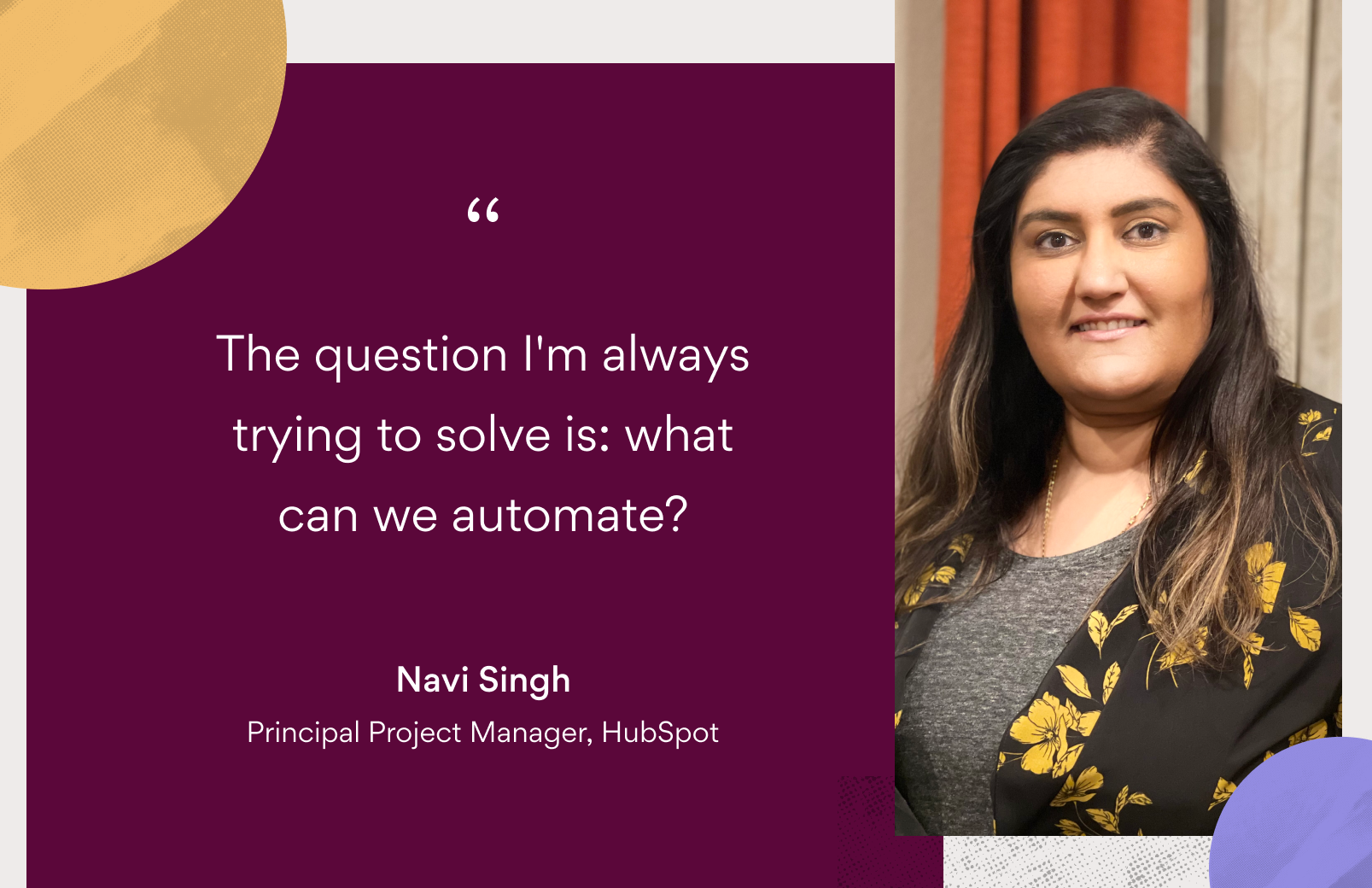6 Asana-powered company leaders who are saving our environment
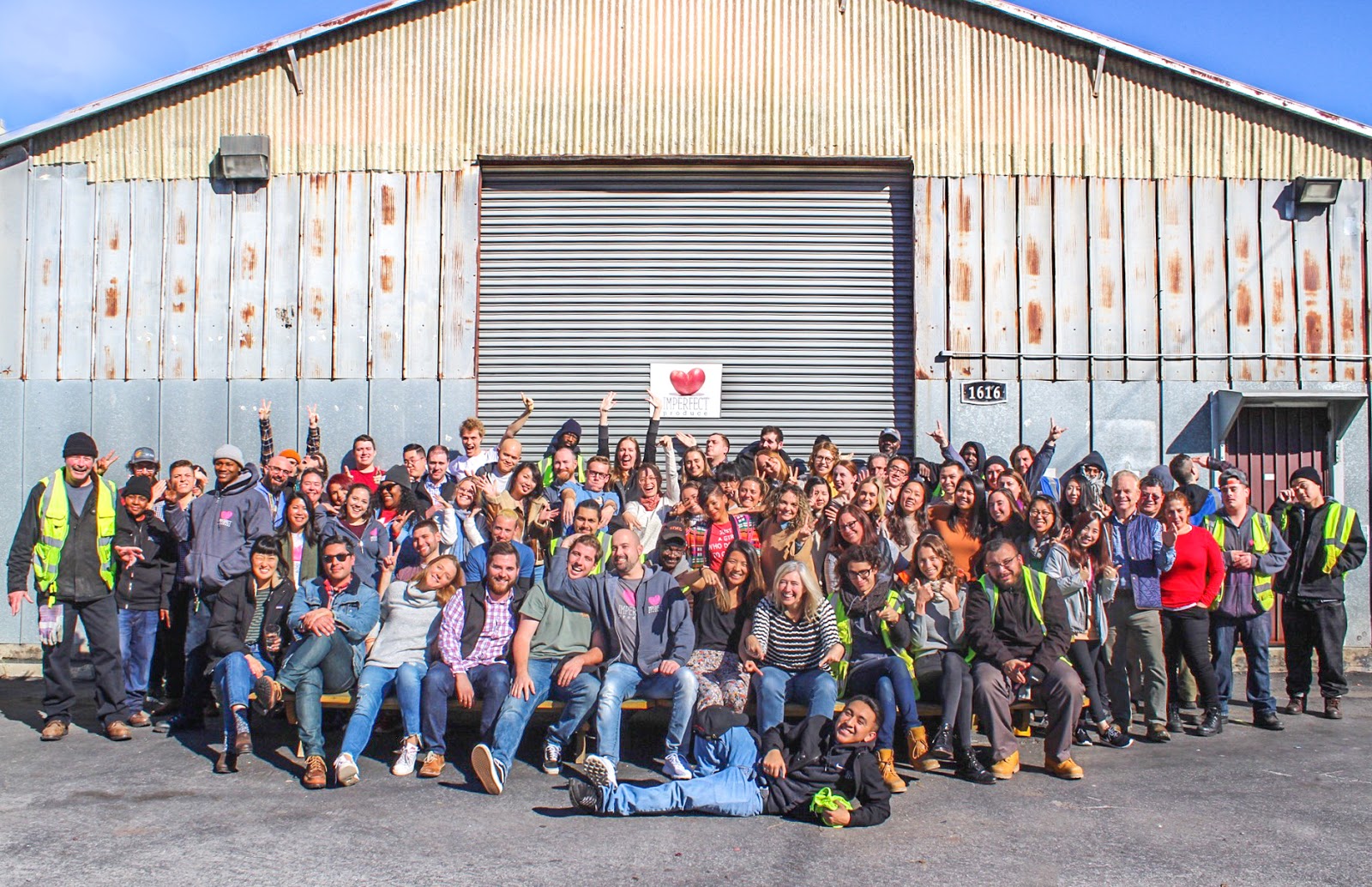
At Asana, we take the environment seriously.
From providing commuter benefits and using eco-friendly office supplies to maintaining a zero waste culinary program and achieving our Green Business Innovator Certification, we love doing our part to keep the planet green. We also love when our customers make environmental sustainability a priority. On this World Environment Day (WED), we’re proud to highlight these six standout companies that are using Asana to help save our environment.
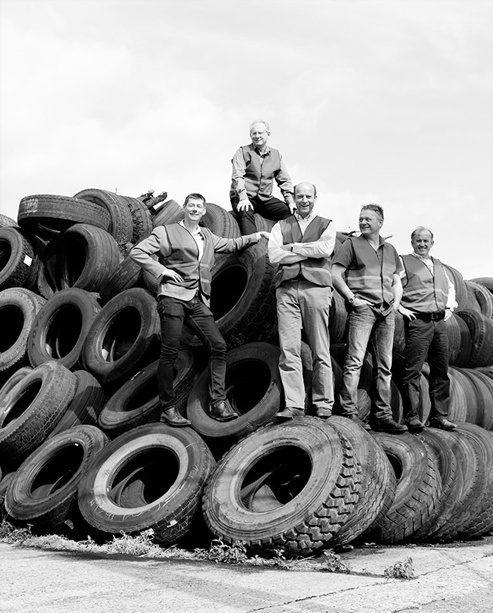
1. Martijn Lopes Cardozo, CEO of Black Bear
In 2013, Martijn Lopes, a serial entrepreneur, had his sights set on identifying a business that prioritized preserving nature and society over generating commercial success. When he met the founders of Black Bear, he knew he’d found what he was looking for and decided to join the Netherlands-based company as its CEO.
Each year, 1.5 billion tires reach the end of their life. The majority are dumped in landfills or incinerated, typically in regions with poor or non-existent environmental controls. The process releases massive volumes of carbon dioxide and produces more than 13 million tons of waste. Landfilled tires are also a breeding ground for malaria-transmitting mosquitoes. Black Bear has developed an innovative process for extracting high-quality Carbon Black, a crucial additive in rubbers and plastics that is typically produced unsustainably by burning oil. By upcycling end-of-life tires to produce sustainable Carbon Black, Black Bear prevents carbon dioxide emissions and simultaneously helps solve the global tire waste problem. The positive impact on our environment is significant. Each of Black Bear’s factories is able to save more carbon dioxide than one million trees can consume!
Asana powers the Black Bear Team as it works towards preserving our earth. It ensures the team has constant, real-time insight into all tasks. It has boosted employees’ confidence that they’re not dropping the ball on anything important and has fueled a measurable impact on morale and engagement. For a team that is tackling the biggest challenges facing our world, Asana’s stress-quelling powers are incredibly valuable.
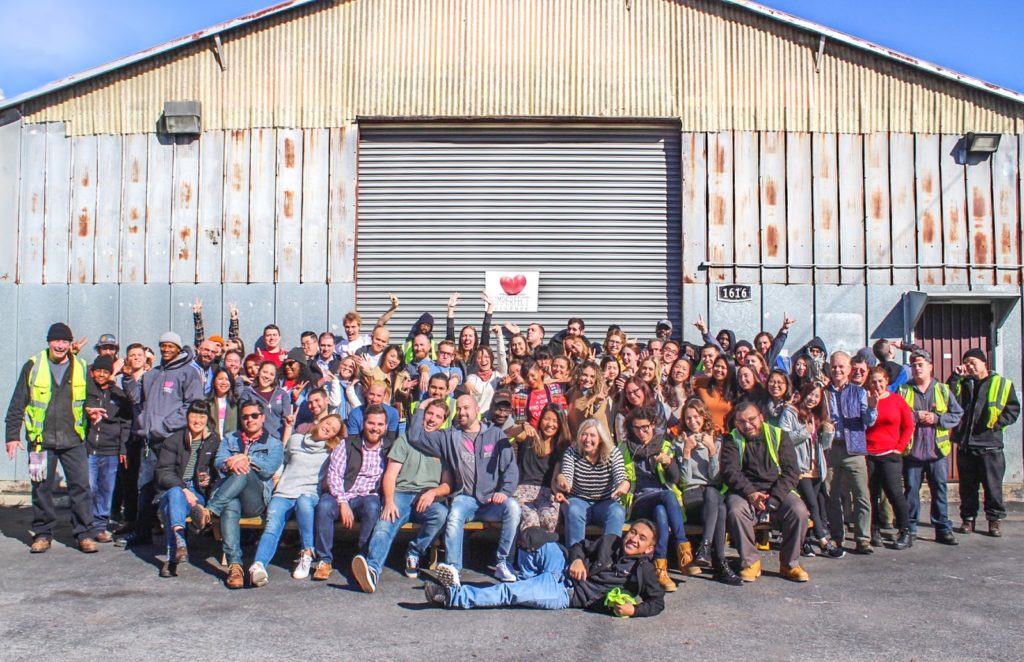
2. Ben Simon, Co-Founder and CEO of Imperfect Produce
While he was a student at the University of Maryland, Ben Simon watched in horror as mounds of food were wasted in his school cafeteria. As Ben began to dig deeper into the food waste problem, he learned that a “farm to fork” problem grips our planet—about one-third of our food goes to waste. That’s enough to feed the world’s hungry four times over, every year. About 20 billion pounds of this food waste never even make it off the farm, often just because of minor cosmetic imperfections.
Compelled to take action, minimize farm-level waste, and make our food system more sustainable, Ben founded Imperfect Produce. Today, Imperfect Produce has saved over 40 million pounds of blemished but edible fruits and vegetables, along with 1.2 billion gallons of water, and 110 million pounds of carbon dioxide, while at the same time delivering healthy, delicious fruits, vegetables, and other grocery items priced about 30% less expensive than those sold by grocery stores.
Asana has become the essential glue that enables Ben and his team to manage projects and initiatives, enabling the team to avoid non-essential meetings, check-ins, and touch-bases and stay focused on saving our planet. One of Imperfect Produce’s core values is “Bring an Appetite”—strive to exceed expectations and deliver impact every single day. Asana’s central system of truth and clarity in terms of project ownership enables the team to consistently “bring its appetite” and deliver real impact.
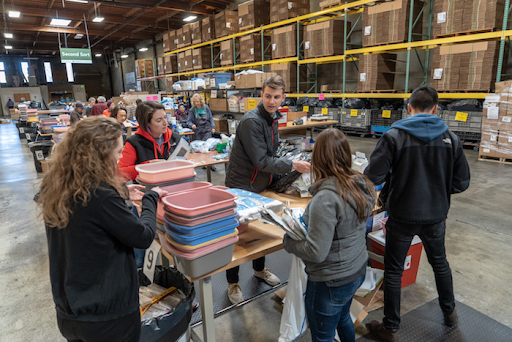
3. Susy Schöneberg, Founder of Flexport.org
After spending six years working as a counselor for traumatized children, Susy Schöneberg learned how fulfilling it was to empower people to reach their full potential. Inspired to scale her one-to-one approach and drive more large-scale impact, Susy zeroed in on Flexport, then a young software-focused freight forwarder helping businesses transport goods to their point of sale. Susy quickly realized that Flexport’s technology and dominant position in the logistics industry, with nearly 10,000 clients and suppliers across more than 100 countries, enabled it to spur large-scale social and environmental impact.
Shortly after joining Flexport, Susy founded Flexport.org. Today, the tools that it has built, which include a carbon calculator, help its clients understand their shipment emissions and reduce carbon dioxide emissions. The impact has been significant. In the past year, Flexport.org has offset more than 11,000 tonnes of carbon dioxide, unlocked 20-25% in shipping savings for nonprofits, and prevented 3.9M pounds of landfill waste. It has also facilitated urgent aid shipments for disasters, including the historic flooding in Kerala, India, all of the California wildfires, several major U.S. hurricanes, and the ongoing humanitarian crisis in South Sudan.
Asana helps the Flexport.org team streamline communication and ensures everyone has finger-tip insight into the status of projects. It’s an essential thread that allows anyone at Flexport to get up to speed quickly on key initiatives. This is particularly critical during events such as urgent disaster relief. For Flexport, which has achieved elite “unicorn” status, when team members complete a task in Asana and see the celebratory unicorn launch across the screen, it has a particularly special meaning.
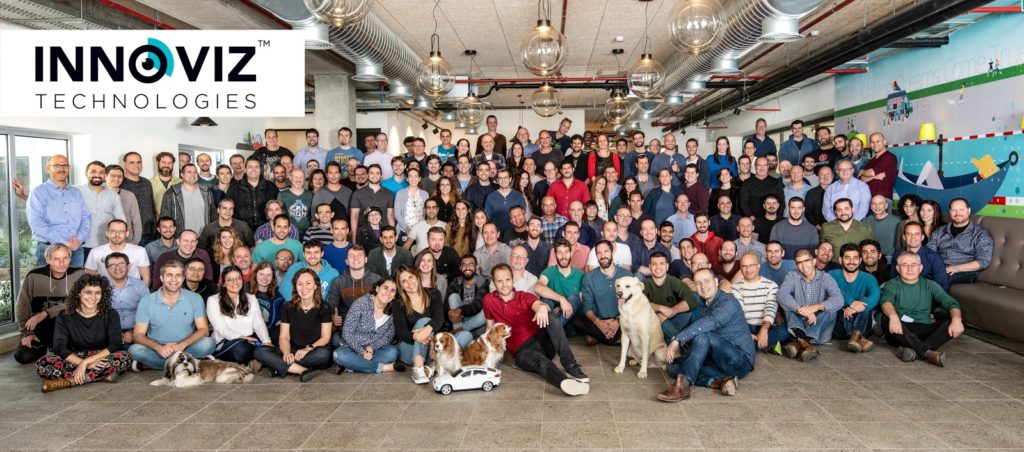
4. Oren Buskila, Co-Founder and Chief R&D Officer of Innoviz
As part of the Israeli Defense Forces’ Intelligence Corps, Oren Buskila was exposed to multiple technology disciplines, team environments, and extremely complex projects with strict timelines. After being exposed to autonomous vehicles, he knew he had pinpointed an opportunity to redefine the transportation industry. Oren, along with three colleagues who served in the same unit of the IDF, set out to develop high-performance, low-cost LiDAR technology that could enable autonomous vehicles to navigate with unparalleled vision. The technology was, at the time, considered to be a crucial missing piece to safely deploying autonomous vehicles.
Today, Israeli-based Innoviz has secured lucrative partnerships with the likes of BMW, which will implement Innoviz’s LiDAR sensors in its autonomous vehicles. But what’s more meaningful to Oren and team is Innoviz’s environmental impact. The transportation sector is the largest source of greenhouse gas emissions in the United States, accounting for 29% of greenhouse gases. The mass commercialization of safe autonomous vehicles powered by Innoviz’s technology has the potential to drastically reduce emissions. If autonomous vehicles were to replace an entire fleet of personal gas-guzzling cars, it has the potential to result in a more than a 90% decrease in greenhouse gas emissions and a nearly 100% decrease in oil consumption. The impact on road safety is also significant—if only one in 20 cars is automated, it can reduce the stop-and-go behavior that leads to traffic jams, congestion, and accidents.
Innoviz is developing complex, multi-disciplinary technology under a very challenging schedule. The team embraces Asana as part of its agile methodology. All of Innoviz’s four-week sprint planning, tracking, and reviewing occur within Asana. Asana has been critical in synchronizing Innoviz’s large-scale efforts, ensuring everyone understands their individual tasks and how they fit into the bigger picture. Asana has enabled the team to work towards its bold objective of revolutionizing the transportation industry, while also saving the environment.
5. Simon Bransfield-Garth, Founder and CEO of Azuri
As CEO of Eight 19—a Cambridge University spin-out producing next-generation solar panels—Simon Bransfield-Garth watched with excitement as Eight 19 reduced the operating cost of solar panels from $5 to $1 per watt. Convinced that these cost savings could enable solar access in new markets, he identified sub-Saharan Africa—where two-thirds of the population live off the grid without access to electricity—as a prime market to launch Azuri. Today, Azuri’s solar home energy systems provide 8 hours of daily lighting to households. More than 150,000 systems have been sold in 12 countries in sub-Saharan Africa, in turn impacting 750,000 lives.
Azuri’s efforts are having a significant impact on our environment. When people live off-grid, they are forced to rely on kerosene lamps and other harmful emission-emitting alternatives for lighting. Azuri not only provides emission-free lighting, but it also cuts customers’ weekly energy spending by as much as 50%. Competing against hundreds of nominations from 125 countries, Azuri was the recipient of the 2018 Global SDG Award for Clean and Affordable Energy, which showcases companies that are helping the United Nations achieve its Global Sustainable Development (GSD) targets.
Asana serves as a powerful backbone for Azuri. Using Asana, Azuri has been able to increase efficiency across its entire value chain. With access to a centralized hub that increases visibility into the status of tasks, Asana has fueled productivity and helped to eliminate hundreds of hours worth of conference calls and meetings, enabling the team to spend more time on what matters —saving our environment.
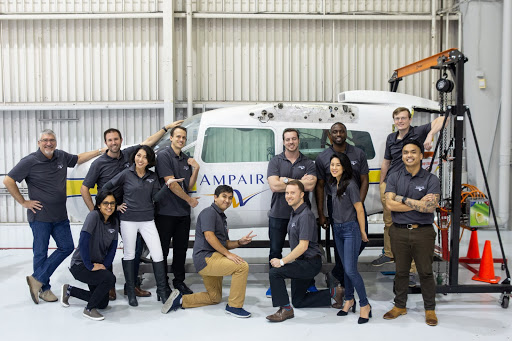
6. Kevin Noertker, Co-Founder and CEO of Ampaire
Growing up in the Utah mountains, Kevin Noertker was surrounded by crisp clean air and clear blue skies. His childhood dream of becoming an astronaut motivated him to join NASA’s Jet Propulsion Laboratory and, later, Northrop Grumman’s R&D arm, where he ran multi-million dollar aircraft and satellite programs. Motivated to ensure that Utah—and the world’s—blue skies remain intact, Kevin and colleague Cory Combs wanted to launch a company that operated at the forefront of technological innovation and environmental sustainability. Their answer is Ampaire, which aims to provide the world with all-electric powered commercial flights that are affordable, quiet, and environmentally conscious.
Today, the commercial airline industry attacks our atmosphere with 800 million tons of CO2 annually. In California where Ampaire is based, small aircraft emit 70,000 pounds of lead, 1,700 tons of NOx, and 90,000 lbs of particulate matter each year. Ampaire’s aircraft solve these attacks, with fully electric operations reducing emissions on short-haul flights by 99%, noise by 66%, and operating costs by 25%. WED holds an especially special meaning for Kevin. He explains, “We are not going to fix the issues of our world by doing business as usual. Global events like World Environment Day are important opportunities for us to expand the conversation outside of the bubble we sometimes live in and become a global community.”
Kevin and his team rely on Asana as a central task management system. For Kevin, Asana has been particularly impactful in on-boarding new hires. Kevin builds out each hire’s job roadmap as an Asana project, with task references to areas of responsibilities and internal resources. Asana provides critical context as to why work is being done and who is responsible for it. It instills a sense of ownership and accountability that empowers team members with a deep sense of purpose and motivation. When you’re paving the way for the future of travel and combating global warming simultaneously, a clear sense of mission is a prerequisite for success.
Saving our environment today, and every day
Although WED is only celebrated one day out of the year, we believe its values and virtues are always relevant. Our environment is precious, and it’s up to each of us to protect it. We applaud those companies that are making a difference and leading the way to a cleaner planet. We can’t wait to see what you all do next!

